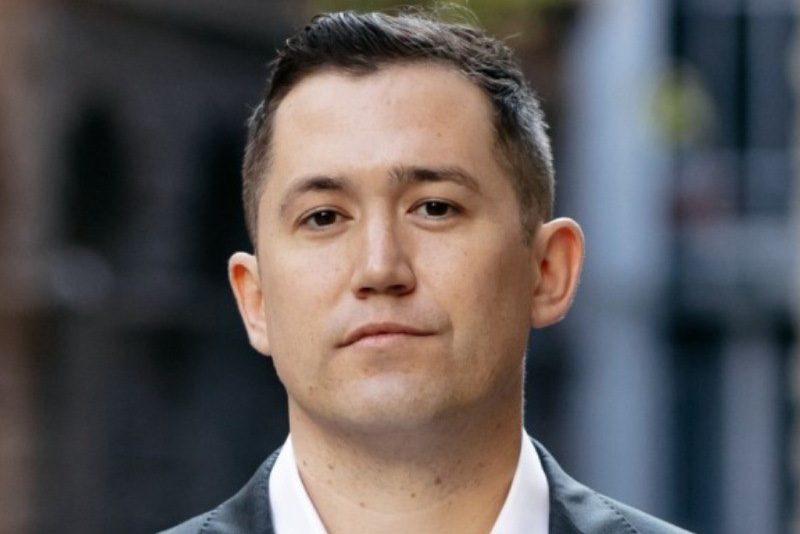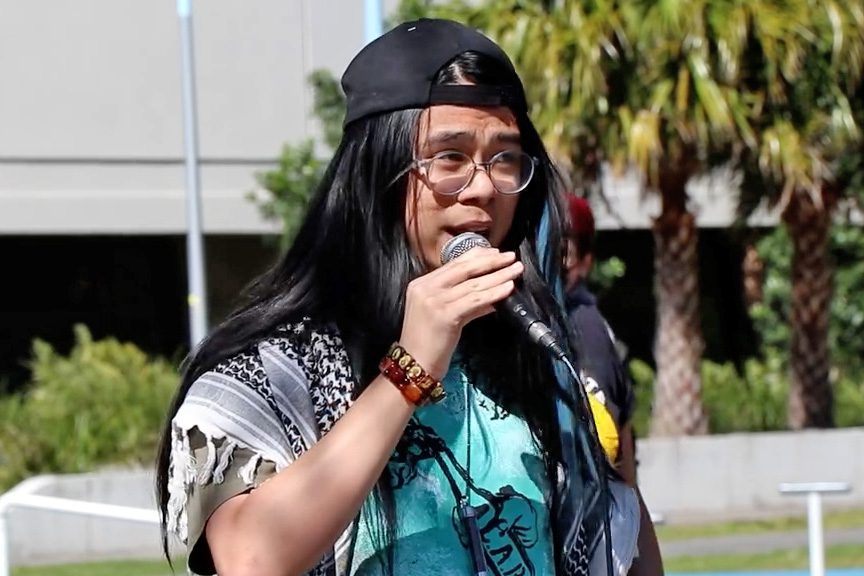- This will take 10 minutes to read. Short on time? Read our 6-minute summary
A new campaign group seeking to challenge the influence activist collective Pride in Protest hold over Sydney Gay and Lesbian Mardi Gras says it will support board candidates who align with its views at the non-profit’s annual general meeting (AGM) later this year.
And in a sign of just how seriously it is preparing, Gay Sydney News can reveal the group, named Protect Mardi Gras, has drawn up a statement of principles that outline what it stands for, campaign conduct and voting commitments.

Since launching, the Protect Mardi Gras faction of Mardi Gras’ membership has attracted public backing from figures on the left side of politics, including unsuccessful Labor candidate for Wentworth Savanna Peake, City of Sydney councillor Adam Worling of Team Clover, and former Greens leader Bob Brown.
The group has also built modest social media followings: 343 on Instagram and 449 on Facebook. By comparison, Pride in Protest counts about 13,300 Instagram followers and 5800 on Facebook.
Notable Protect Mardi Gras Instagram followers include current Mardi Gras directors Kyriakos Gold and Labor-aligned Daniel Mitsuru Delisle; Delisle’s partner Mat Howard, who is Labor Inner West Council deputy mayor; former Mardi Gras CEO Gil Beckwith; and former Mardi Gras director Brandon Bear, although following an account on Instagram does not necessarily indicate support.
In contrast, Gold, Bear, Peake, Howard and Delisle do not follow Pride in Protest’s Instagram account, but Beckwith and Worling do.
In a LinkedIn post commenting on Protect Mardi Gras’ formation about a month ago, Gold wrote: “I’m genuinely heartened to see our community coming together to secure the future of one of the world’s most iconic events.”

Other followers include NSW Labor parliamentary secretary for transport Marjorie O’Neill; unsuccessful Inner West Council Labor candidate Christine Su-Manlutac; Rainbow Labor NSW; and former parade producer Cass Looveer.
Confirmation that Protect Mardi Gras intends to endorse candidates signals a bid to gain board influence and counter Pride in Protest’s presence. Pride in Protest members Damien Nguyen and Luc Velez currently hold two of seven board seats. An eighth seat is vacant following Brad Booth’s recent resignation, expected to be filled by a board-appointed director that has yet to be named.

Statement of principles revealed
Gay Sydney News has seen Protect Mardi Gras’ statement of principles, not yet released publicly. It sets out how the group will advise members to vote on motions at the AGM, where four director positions will be up for election.
The principles commit to opposing attempts to exclude groups from the festival based solely on affiliation, such as LGBTQIA+ police, politicians, sponsors or community organisations. They also advocate for Mardi Gras as a broad and inclusive platform while rejecting what they describe as “entryist” tactics aimed at narrowing its mission.

“We believe in challenging bad behaviour and harmful institutions – but we do it in ways that build power, grow support, and win real change,” the document states. “That means welcoming individuals who are showing up in good faith, even if the institutions they’re part of need reform.”
The principles also stress open and accountable governance: “While some matters – like HR or commercial negotiations – must remain confidential, greater transparency will strengthen governance and build community confidence.”
The group further pledges not to engage in “personal attacks or online pile-ons” and to model “respectful and strategic activism”.
Protect Mardi Gras co-founder Peter Stahel, a former adviser to Greens MPs and now managing director of the progressive research firm Essential, told Gay Sydney News the campaign would back candidates who signed up to the principles. But he said he would “absolutely not” run as a candidate himself.

“There are no plans for a preselection or a ticket … I expect we will just have candidates we support,” he said. “We will certainly endorse candidates that understand the power of inclusion to protect queer people.”
Stahel, who ended his Greens membership in 2015 but still votes for the party’s candidates or independents, said he was happy with how the Protect Mardi Gras campaign was going so far.
“We hoped that by leading from the front and giving people a bit of hope and an indication that there was an organised effort to protect Mardi Gras would give people the confidence to get involved,” he said.
While acknowledging broad support, Stahel described the campaign’s existence as regrettable but necessary.
“This campaign wouldn’t need to exist were it not for the entryist [Pride in Protest] campaign,” he said. “This is a deliberate attempt to push back against what we see as a really dangerous push for exclusion.
“Unfortunately, when entryists try to change the fundamental nature of an organisation, the only way to protect the culture is to organise. Otherwise, the entryists wear everyone down and eventually win. This campaign would not exist if it were not for this reality.”
Pride in Protest’s agenda
The term “entryism” typically describes activists joining larger organisations to influence them from within. Protect Mardi Gras has accused Pride in Protest of this tactic.
Pride in Protest has campaigned to indefinitely ban police from marching in the parade, to bar parliamentarians unless they back removing religious exemptions in anti-discrimination law, and to exclude corporate sponsors such as American Express over alleged discrimination against sex workers.
It has also sought greater support for queer communities in western Sydney and regional NSW, and pushed for a public safety summit in response to far-right violence. (The City of Sydney later convened such a summit, initially without police involvement but followed up with meetings with police to discuss findings.)
The group has also advocated for an expanded ethics charter governing sponsorships and procurement, setting human rights standards and pushing for solidarity with Palestine.
Many of its motions have been defeated, though it successfully campaigned for the Mardi Gras Police Accord to be torn up, which previously governed decency checks at the parade, and nearly succeeding in its push to have police excluded from the parade at the last AGM.
Pride in Protest responds to Protect Mardi Gras campaign
Pride in Protest organiser Luna Choo rejected claims of entryism as “a shameless way of saying there are ‘real’ gays and ‘fake’ gays”.
“I believe there are thousands of LGBTQIA+ community members with legitimate concerns about the police who would not appreciate having their voice insulted like this,” said Choo.

“This is just a new iteration of the same stale talking points we’ve seen from the right-wing time and time again.”
Choo also argued that Protect Mardi Gras lacked limits in what it would tolerate: “Having principles and treating oppressive institutions accordingly is about having a spine, whereas ‘Protect Mardi Gras’ seem to have no limits to how bigoted and anti-queer an institution can be in order for them to be celebrated.”
Competing visions for the festival
Stahel said he initially saw no harm in Pride in Protest’s activism but grew concerned as its motions gained traction.
“It was as they started to build momentum … that I realised we needed to have more organised pushback,” he said.
Protect Mardi Gras argues that Pride in Protest is promoting an exclusionary agenda. Stahel said his group’s priority is encouraging ordinary Mardi Gras members to become more engaged.
“We want community members … who value Mardi Gras,” he said. “We want them to get engaged and then we want them to vote.”
Pride in Protest counters that Protect Mardi Gras’ principles would mean opposing motions such as barring Gilead from sponsorship after alleged price gouging of PrEP, an antiviral medication used to prevent HIV.
“According to these motions, they would vote against a motion that would stop a far-right party like One Nation … from participating in our parade,” said Choo.
What’s at stake at the AGM
Pride in Protest’s Damien Nguyen remains in his two-year Mardi Gras directorship until the end of next year, but fellow organiser Luc Velez’s term ends at this year’s AGM. Also expiring are the terms of directors Kathy Pavlich, Kyriakos Gold and Louis Hudson.

However, outgoing directors can renominate indefinitely – something criticised in a scathing external governance review of Mardi Gras, leaked to Gay Sydney News last year.
The external review of Mardi Gras recommended that Mardi Gras should “reflect on the minimum term that board members are able to serve” to “ensure the independence of the board is maintained”.
Pavlich seeks re-election; Hudson calls time on board role
Gay Sydney News contacted directors with expiring terms. While Velez and Gold did not respond on the record, Palvich said she supported the Protect Mardi Gras initiative and confirmed she would be renominating to be on the board. Hudson indicated that he would not be standing as a candidate.
While he was hesitant to endorse any individual candidates without seeing their statements and “understanding the skills they bring”, Hudson said he “strongly believe in the principle that Mardi Gras must remain open and accessible to everyone who identifies under the LGBTQIA+ umbrella”.
“The organisation has faced significant challenges over the past couple of years, and now more than ever, we need directors with the expertise, vision, and commitment to ensure Mardi Gras not only endures but thrives as we count down to the milestone of our 50th anniversary,” Hudson said.
Hudson retires after more than 20 years as a Mardi Gras volunteer and six years serving on the board.
“I feel the timing is right to step away from directorship and return to a more traditional volunteer role within the organisation,” he said.
“Serving on the board … has been one of the greatest privileges of my life, and I sincerely thank the membership for entrusting me with this responsibility over the past six years. It has truly been an honour.”
The AGM, likely to be held in December, will include speeches from board co-chairs and CEO Jesse Matheson, a review of the non-profit’s financial report, and any votes on board positions and member motions.
Stahel said Protect Mardi Gras planned to play an active role.
“Mardi Gras is a protest, it’s a party, it’s a festival … and it needs to be all of those things because its power and influence comes from scale,” he said. “If we let people make it smaller we will lose that power and … our ability to drive change.”
Choo said Pride in Protest also wanted Mardi Gras to remain powerful, but through activism: “They [Protect Mardi Gras] don’t want Mardi Gras to be ‘welcoming’ – they want it to be a doormat.”
Editor’s note: Journalists Eliot Hastie and Ben Grubb each pay $50 annually for Mardi Gras memberships to access retail and bar discounts but do not use the membership’s voting rights






1 Comment
At its core, this is an argument about values. My view is that the best path is always inclusion, provided there is a willingness to engage in open dialogue and consider other perspectives. Exclusion doesn’t solve the problem—it merely removes any possibility of influencing those you disagree with.